5 times Russia (unwittingly) contributed to American greatness
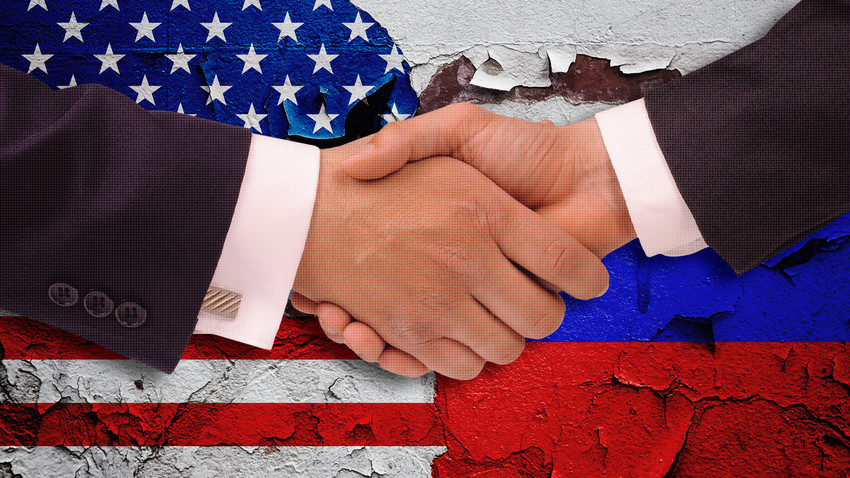
Sometimes two powers assisted each other to a great extent.
Legion Media, PixabayAs of November 2019, relations between Moscow and Washington have continued to sink to new lows – a sad trend of progressive record-setting that has persisted throughout the last decade: spy scandals, mutual allegations of political interference, harsh tit-for-tat diplomacy, – as well as the termination of a 30-year-old nuclear weapons treaty – we’ve seen it all... and then some!
Against the current backdrop of Russian Deputy Foreign Minister Sergey Ryabkov saying this summer that Russian-American relations were “even worse than during the Cold War era,” it’s hard to focus on the positives. But let’s not forget that the history of our bilateral relations is far from a dark one, and has also had moments of friendship, mutual assistance and cooperation.
Here is the list of what Russia (or the USSR) helped the U.S. with – intentionally or not.
1. Supporting the North in the Civil War
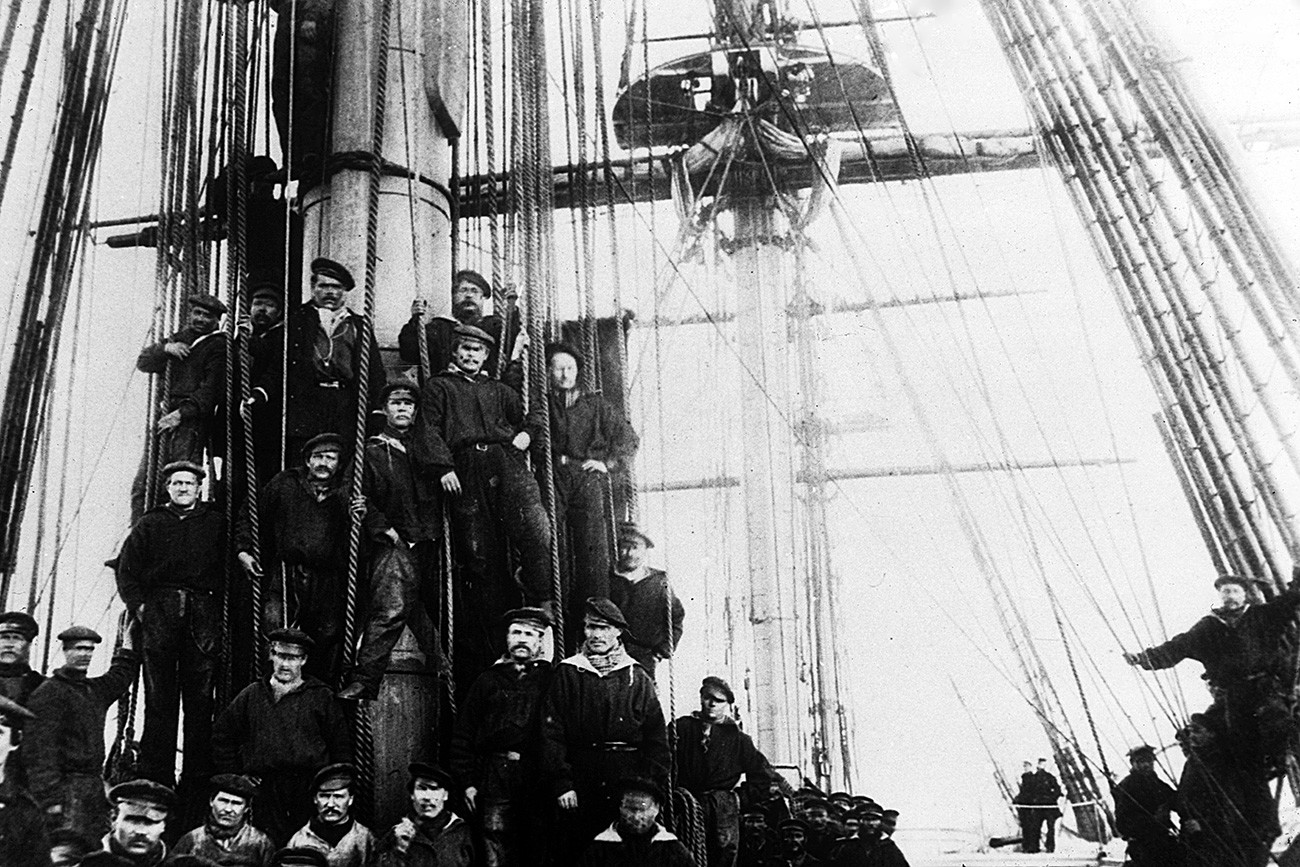
A crew of a Russian warship during the American Civil War, 1863.
Getty ImagesWell, given that some Americans in the Southern states still like waving Confederate battle flags from time to time, not everyone in the U.S. will be thankful for that one. But to those who believe the Union was on the right side of history – you’re welcome!
The point is, the Russian Empire officially supported Abraham’s Lincoln government diplomatically (the only European state to do so, apart from Switzerland) in 1862. “Russia desires above all the maintenance of the American Union as one indivisible nation,” Foreign Minister Alexander Gorchakov wrote to the U.S. embassy secretary. Moreover, Russia sent two fleets of six warships each to patrol the waters around New York and San Francisco.
Russia was, of course, pursuing its own set of objectives as well. In the 1860s, facing the possibility of another European war, it needed footholds in America to attack overseas territories belonging to France and Britain. Nevertheless, Russian warships helped the Union to keep their cities safer. Nowadays such a story reads like a fairytale.
Click here for our story on Russian assistance to Abraham Lincoln
2. Selling Alaska
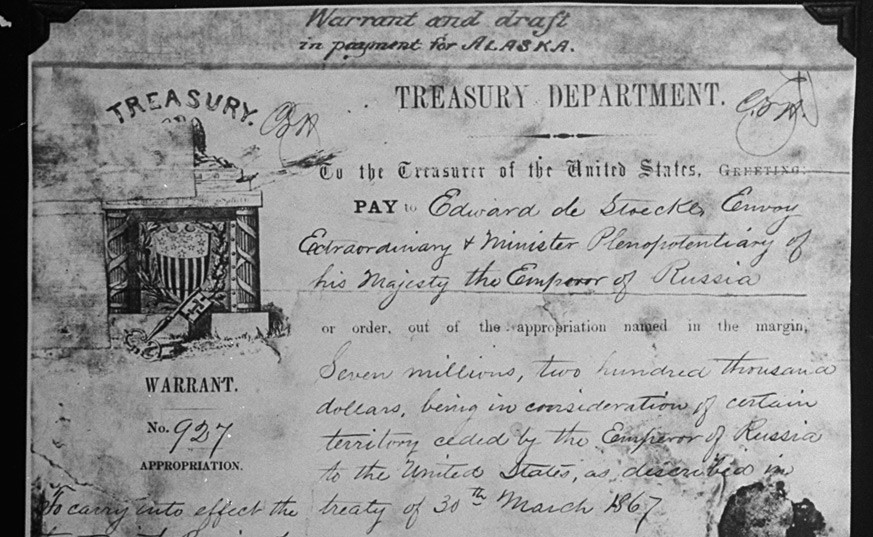
A bill of sale for the purchase of Alaska from Russia.
Getty ImagesAlaska turned out to be a real goldmine for the Americans (pun intended): in 1867, the U.S. purchased it from Russia for a measly $7.2 million to discover vast gold reserves there just twenty years later. The Klondike gold rush of late 19th – early 20th century gave the American economy hundreds of millions of dollars, while Russia could only bite its elbows.
Why did we sell Alaska to Washington? Long story short – it was too expensive and difficult to control such remote lands all the way from Moscow, lands where Russia also faced the depletion of natural resources (or so it thought!), so getting rid of it seemed like a good idea... Oops. That was how America got its 49th state, the biggest, the coldest and its important footnote in the Arctic.
Here we have the story of the Alaska purchase in detail
3. Sending immigrants
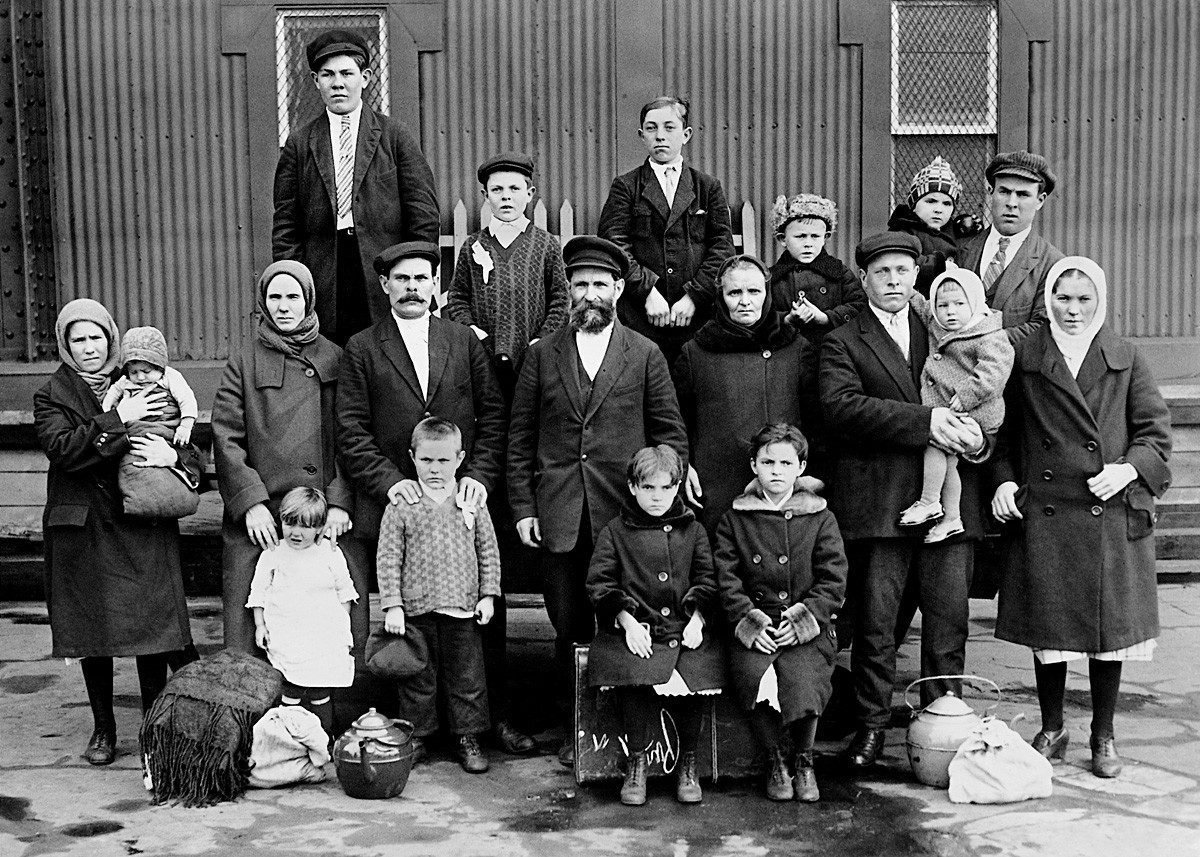
A family of Russian immigrants in the American harbor.
Global Look PressTo be frank, almost every country in the world can demand gratitude from the U.S. in this regard. To be even more frank, it’s not really something Russia can be proud of – but the sons and daughters it lost in the terrible chaos and bloodshed of the 20th century have enriched American science and culture to a great extent.
First, thousands of people left because of anti-Jew pogroms of the late 19th – early 20th century. They settled down in America, had families and children – and that’s how America got, for instance, Steven Spielberg. Or Bob Dylan, or Harrison Ford, or David Duchovny, or Gwyneth Paltrow… all of them, like many others, are descendants of the Jewish immigrants from the Russian empire.
Second, just after the revolution broke out in 1917 and the Bolsheviks seized power, the U.S., along with Europe, faced an influx of Russian immigrants who couldn’t stand living under the red regime. Among them were such people as novelist Vladimir Nabokov (Lolita), engineer Vladimir Zworykin (was among those who created the television), aircraft designer Igor Sikorsky (invented the best planes and helicopters of his time), composer Sergei Rachmaninoff and so on.
Sure, all of those immigrants missed their homeland, but they pretty much embraced America, its values and opportunities. “The Earth is solid everywhere. I recommend the U.S.,” poet Joseph Brodsky, yet another famous immigrant, wrote (link in Russian) to his fellow émigré, ballet dancer Mikhail Baryshnikov. Baryshnikov seemed to agree, himself applying for American citizenship.
4. Contributions during World War II
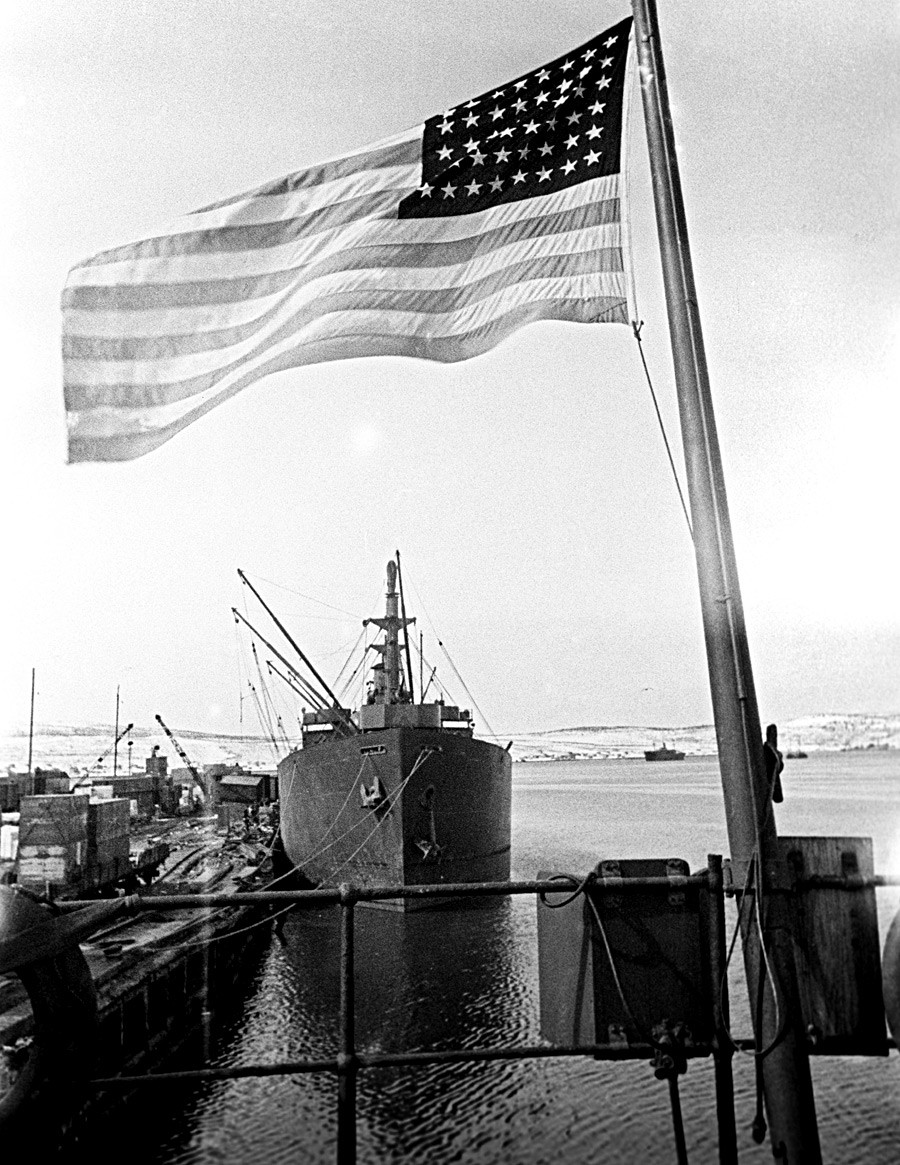
An Allied convoy arriving in Murmansk, northern Russia.
Oleg Knorring/SputnikThis one goes without saying. In World War II, the Allies, who had pretty much hated each other’s guts before the war, faced such absolute evil as Nazi Germany, so they united and fought together for the future of the whole human race. And while the importance of every country’s efforts resisting Nazis or militarist Japan is beyond doubt, the USSR suffered the most losses (26,6 million people according to official statistics, compared to 405,000 American casualties).
What would have happened had the USSR not fought Germany? Even if Britain, the U.S. and their allies would have somehow managed to win, the victory would have come at a cost that’s hard to estimate. That’s why Russians get so irritated when they hear somebody underestimate the Soviet contribution to winning WWII.
5. Posing a challenge in the Cold War
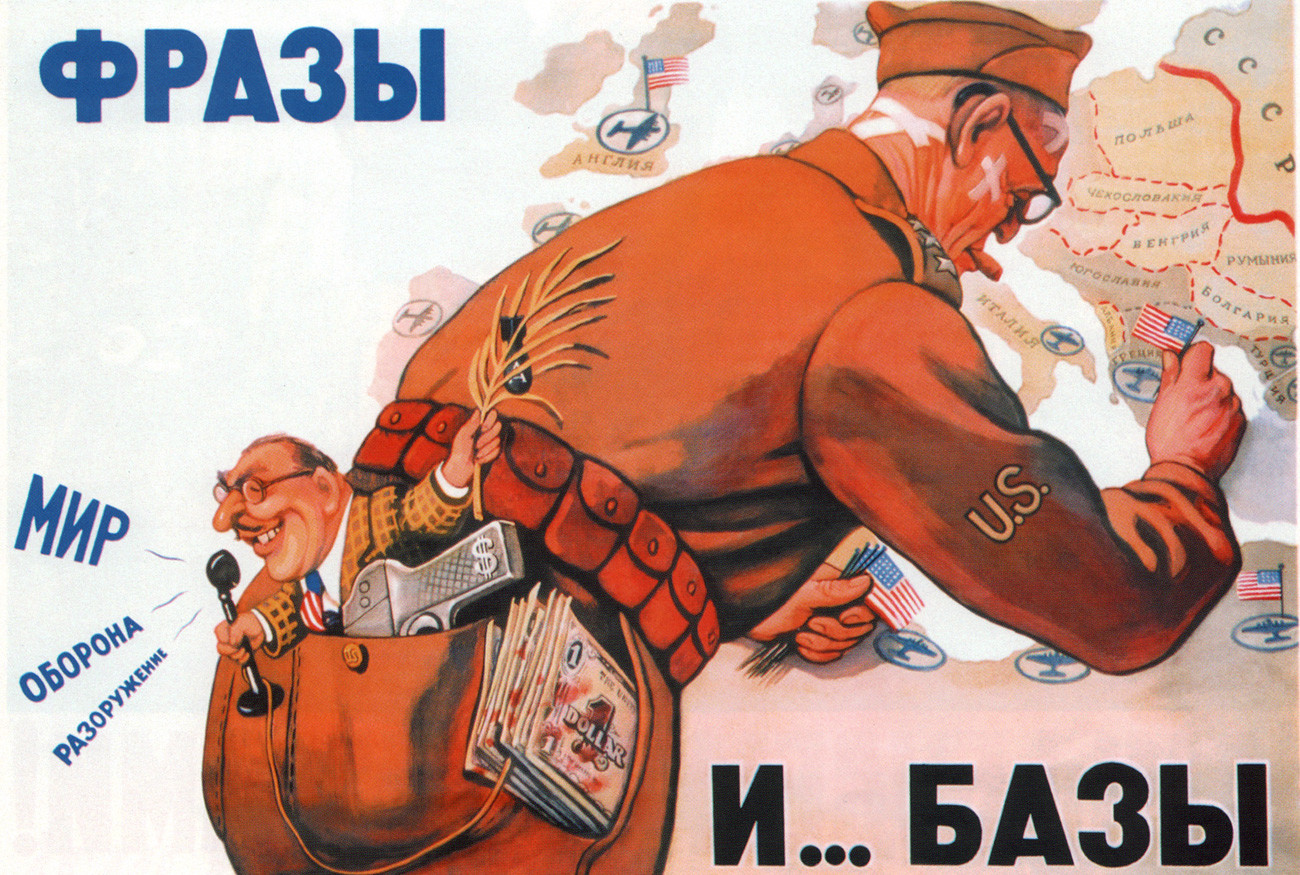
"Phrases and bases" propaganda poster in the USSR, mocking the U.S.
Getty ImagesIt was during the confrontation with the USSR, which lasted from the 1940s to the 1980s, when the U.S. became a real superpower. And while the nuclear arms race surely put all of humanity at risk for probably the rest of its natural history, challenges from the Soviets made the Americans progress in every field – military, economy, culture and science. Even while answering the question “Why was NASA created?”, American astronauts answer: “To beat the Russians!” And they’re right: the space race kickstarted humanity’s desire to explore the universe.
Also, the danger from the East made the Western capitalist (mainly European) countries unite behind a security shield. And Washington, with its huge military capacity, played the role of such a shield, creating the NATO bloc. After the USSR and its socialist bloc fell apart, NATO faced an existential crisis. Today without obvious enemies, the meaning behind the military bloc is getting increasingly vague and harder to justify, while its leaders keep bickering about who owes how much to whom. Perhaps the way Russia is sometimes portrayed as absolute evil in the West today is just pure nostalgia for the good old days!
If using any of Russia Beyond's content, partly or in full, always provide an active hyperlink to the original material.
Subscribe
to our newsletter!
Get the week's best stories straight to your inbox